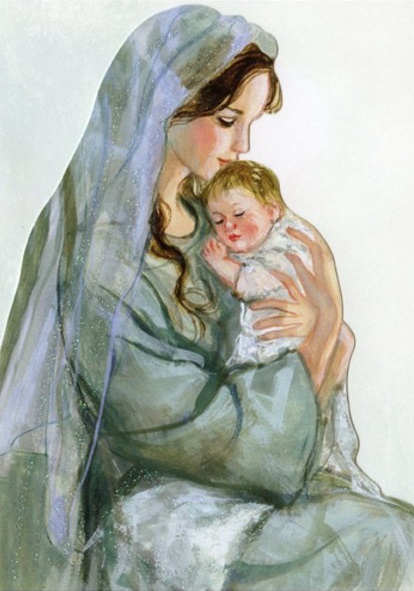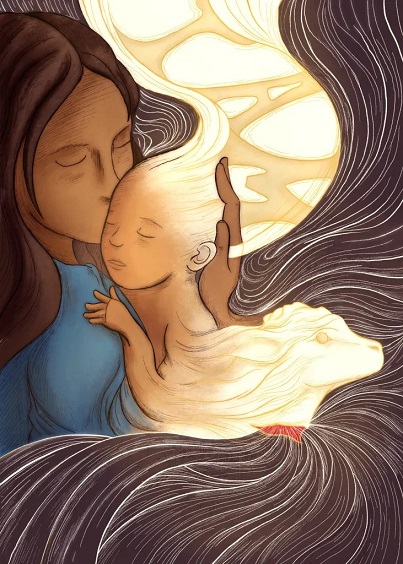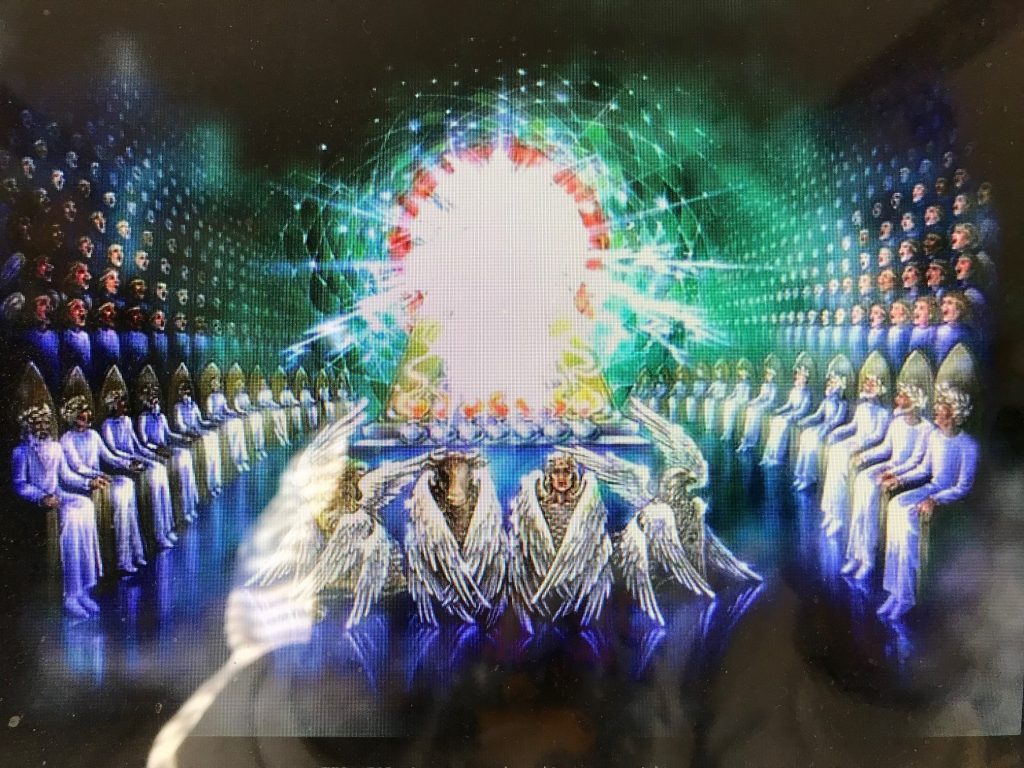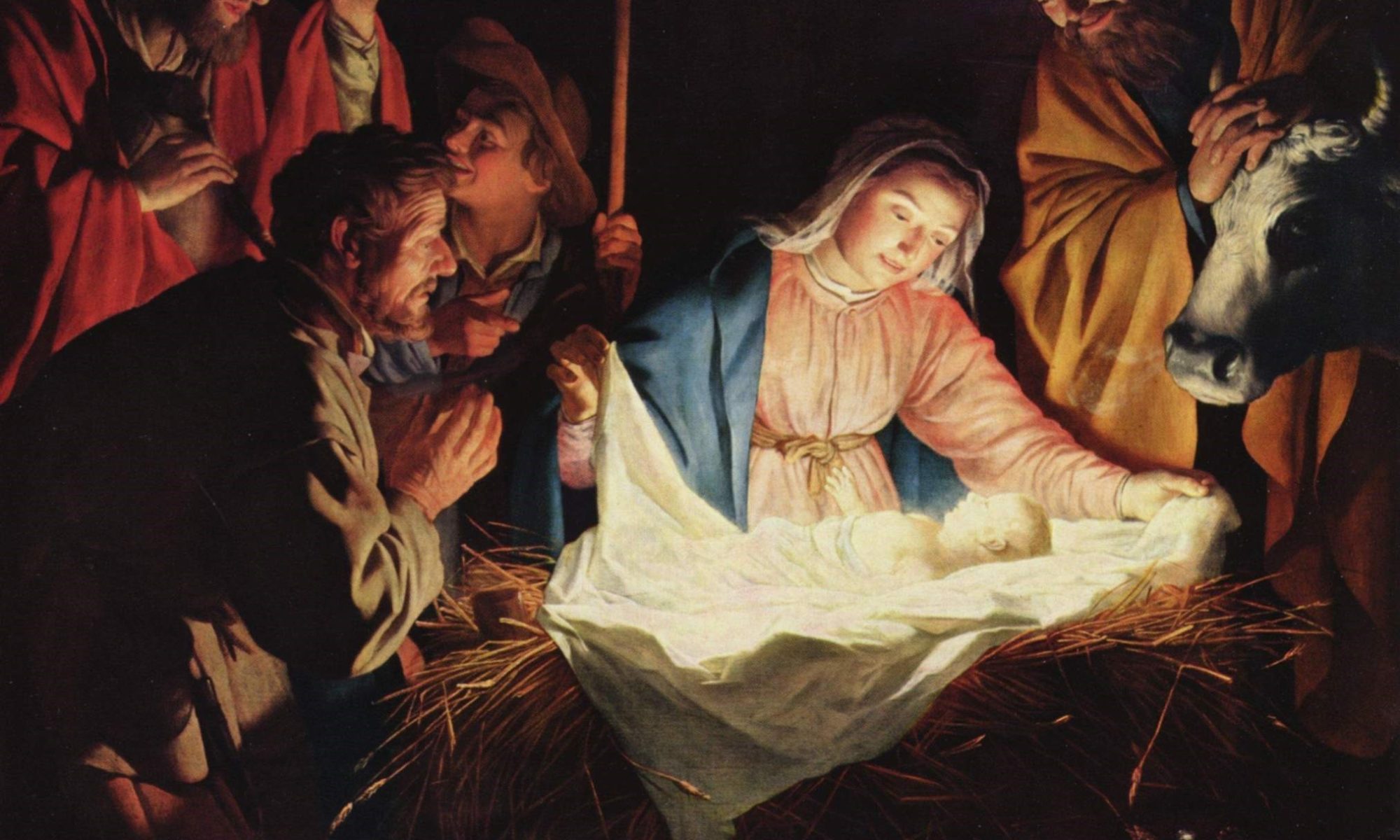
Readings: Exodus 40:17-21, 34-38 | Titus 3:4-7 | John 1:1-14
Text: John 1:1-14
The Word became flesh and dwelt among us. Those few words describe the most important event in all creation. You would think that the universe being created out of nothing by the Lord simply speaking His Word would, by default, be the most important. Or maybe when the Lord created humanity in His image and likeness. But no. The One through whom all things were made become one of us. Was born just like we were. Lived just like we live. Died just like we will die. So that everything else He did would be counted as ours.

Last night we celebrated the night when Jesus was born. We remembered Mary and Joseph, the shepherds and angels. This morning, the opening of John’s Gospel reveals just how much the incarnation, that is God taking on our flesh, means for all of creation. Before this, the Lord was certainly our creator. But even with His image and likeness, we were not the same. God did one thing, humanity did another. God is perfect and holy, humanity chose sin and depravity. God is eternal and immortal, humanity chose death and self-destruction. One man’s sin reflected all humanity. One man’s death meant death for all. It would take the sinlessness of God to overcome inherited sin. But only a human being could do it for it to count for us all.
The first half of Paul’s letter to the Romans lines this out far better than I. “Therefore, as one trespass led to condemnation for all men, so one act of righteousness leads to justification and life for all men. For as by the one man’s disobedience the many were made sinners, so by the one man’s obedience the many will be made righteous.”
And so, the Word who was with God, who is Himself also God, through whom all things were made, did something new. The Word became flesh and dwelt among us. God became a human being, just like you and me.
But before that happened, the Lord first made the world ready. He set aside a people to whom He would be born. He gave them all the Law that He required us to fulfill. He had them hand it down from generation to generation. He kept those generations faithful, sometimes through only a small remnant. They were Jews.
He also turned other kingdoms into empires that would conquer all. Persians, then Greeks, then Romans. Each adding another piece. The Persians funded the temple rebuild, and the walls that let Jerusalem survive. The Greeks brought the language that would unify the nations. And the Romans gave peace and free passage to all who were within their borders. So, at the right time, God entered His creation, took on human flesh, and was born to a virgin. He was named Jesus. The Word became flesh and dwelt among us.

Jesus did not take a comfortable life. He did not enjoy the charmed life of those born wealthy. He did not inherit a life of power for those born into royalty. He did not inherit anything of note, except a name handed down from generation to generation. He did not live a life that only a few may know, but the life that all experience. A life of hardships, and loss, and pain. We read that “He is the radiance of the glory of God and the exact imprint of his nature, and he upholds the universe by the word of his power . . .” But He sets everything aside to be just like us. Not because He would like to fit in with us, or gain our favor. Rather that’s the only way we can be saved from our sin.
Jesus fulfilled all the Law that He had given to Moses and the prophets of Israel. Jesus lived His life without sin. He was blameless, spotless, just like the lamb of the sacrifice the Law required. By Jesus becoming human, we shared our sin and death with Him who had none. But the reverse also happened. “for if, because of one man’s trespass, death reigned through that one man, much more will those who receive the abundance of grace and the free gift of righteousness reign in life through the one man Jesus Christ.” He got our sin and death, we got His sinlessness and life.
And did He ever take our death away! The spotless Lamb of God, was nailed to a cross in our place. He received the wages of our sin as one of us. He died a criminal’s death because He became one of us. He was buried alone in His tomb like we deserved. And in exchange, we are now children of God like the only-begotten Son. We stand without our sins before the judgment seat, just like Him. We have life instead of death, just like Him. Because, here’s the kicker. on the third day, Jesus stopped being dead. Not as a god freed from his humanity. Jesus rose in our humanity. The Word became flesh and dwelt among us.

In the flesh, Jesus left the grave. In the flesh, He appeared to Peter, the twelve, and five hundred witnesses. In the flesh, Jesus remained with them forty more days after His resurrection. And, get this, when Jesus ascended back into heaven, He did it in the flesh. Jesus still has our humanity. That means that the triune God, Father, Son, and Holy Spirit, has our humanity joined in. God is no longer an other. God is one of us. Everything that is His, He has made ours.
He has made us sinless, by taking our sins away, dying with them on His cross, and forgiving our sins forever. He has made us immortal, by dying and rising on the third day. He has made us children of God by becoming our brother. He has made us heirs of His kingdom in the same way. So this Christmas Day, we rejoice. We have heard the good news. We have good tidings of great joy that is for all people. The Word became flesh and dwelt among us.
In the Name + of Jesus. Amen.














